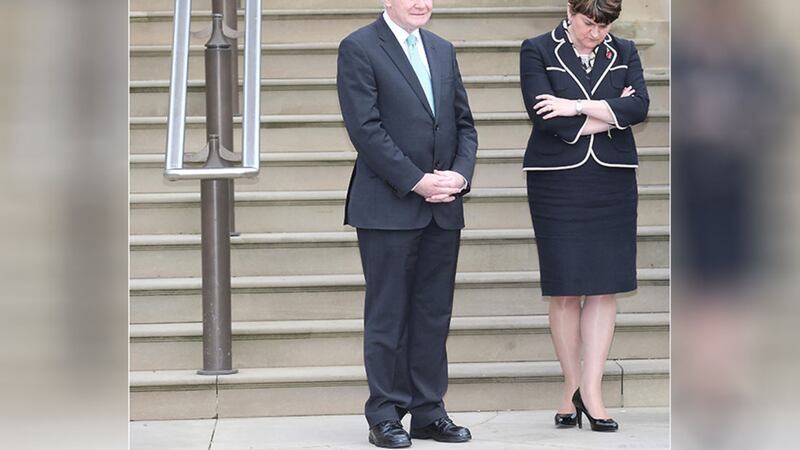Here's what you need to know about the impact of Martin McGuinness' resignation on the power-sharing institutions:
1 If Martin McGuinness resigned why does it affect Arlene Foster?
The first and deputy first ministers hold joint office and neither can remain in post without the other so when Martin McGuinness resigned he ended First Minister Arlene Foster's term in office too.
2 Why could his resignation trigger an election?
Sinn Féin has seven days in which to nominate a successor to Martin McGuinness. If the party does not do so - and it has indicated that it will not - the institutions collapse and an election will be called. The same process would occur if Arlene Foster had resigned and her party chose not to appoint a replacement. Talks will now take place between the parties and the British and Dublin governments in a bid to resolve issues and postpone any election.
3 Who calls an election?
Secretary of State James Brokenshire.
4 When will the Assembly election be?
Legislation states that an election has to take place within a reasonable period of time. Six weeks from the date of resignation is the minimum period.
5 What is different about this Assembly election?
Fewer assembly members will be returned. In the most recent election in May of last year 108 assembly members were returned, six per constituency. However, in the next election there will be five assembly members returned from each of the 18 constituency bringing the total to 90. The changes were agreed upon as part of the Fresh Start agreement in November 2015 and legislation was passed in February 2016.
6 Could there be a return to direct rule from Westminster?
If the DUP and Sinn Féin are returned as the two largerst parties at Stormont and are still at loggerheads over the Renewable Heat Incentive (RHI) scandal it is possible they might not agree to form a new Executive in which case Stormont could be suspended and direct rule follow. Imposing direct rule would require emergency legislation to be passed at Westminster as the powers of suspension were removed under the 2006 St Andrew's Agreement.
7 When was the last time there was direct rule?
There have been four instances of direct rule since the 1998 Good Friday Agreement.
February-May 2000: Then secretary of state Peter Mandelson suspended the Assembly after the UUP/SDLP-led executive failed to strike a deal on IRA decommissioning.
August 2001: A 24-hour suspension took place at the behest of then secretary John Reid due to a lack of progress on decommissioning. It effectively gave the parties six weeks in which to resolve the decommissioning issue.
September 2001: John Reid suspended the Assembly for a further 24 hours, again buying the parties time.
October 2002-2007: This was the longest period of direct rule and resulted from an investigation into an alleged IRA spy ring at Stormont. Ten days after Sinn Féin's officers were raided Mr Reid suspended devolution. In 2007 the power-sharing executive was established with DUP leader Ian Paisley and Sinn Féin's Mr McGuinness as first and deputy first minister.
Watch: Who is Martin McGuinness?


